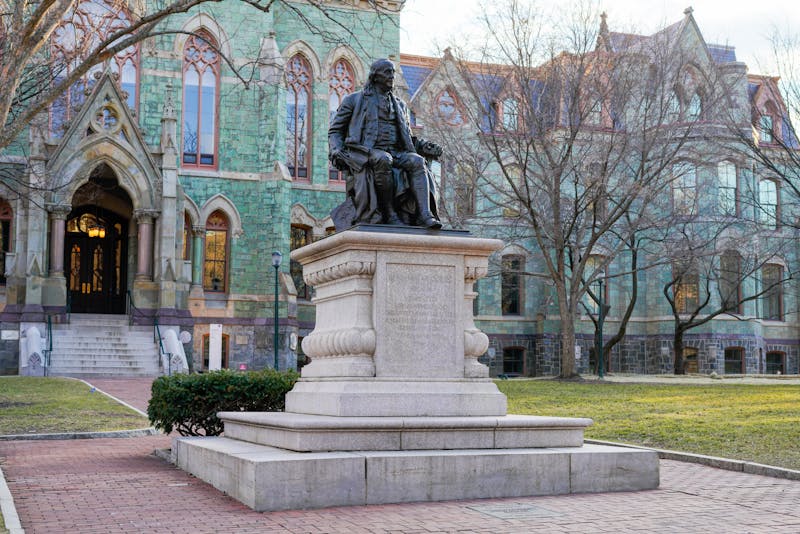
Brothers in Delta Lambda Phi, a new fraternity at Penn for "gay, bisexual and progressive" males, garnered national attention recently when they were featured in an mtvU segment about being openly gay at college. Now they are hoping to make similar waves on campus. "It was funny, a lot of people actually thought the fraternity was fake for a while," former DLP President and recent Wharton graduate Luzerne McAllister said. "People didn't believe it could be legitimate." The fraternity, which is affiliated with the University but is geared toward any "undergraduate-aged" men in the Philadelphia area, was a colony for two years prior to becoming an official chapter earlier this year. National rules required the founders to first have at least three pledge classes with a total of 12 people initiated to officially be recognized. McAllister said that the relatively small number of current brothers -- there were 14 last semester -- is indicative of the goals of the fraternity. "We want to stay personal," he said. "Some of these people, because of their homosexuality, haven't had the best experiences with their families. So in many ways we have become each other's family." McAllister said that the fraternity differs from more "mainstream fraternities" in two major ways. "We frequent gay clubs, go to drag shows, so our culture is different, and we celebrate that," he said. "But it's also weird because when I'm with my brothers it is the only time when being gay, bisexual or progressive has nothing to do with my identity, because everyone else is, too. I like to say that if there were multiple fraternities for gay, bisexual or progressive males I would choose this one because it has its own culture beyond sexuality." One distinctive feature of the fraternity is its emphasis on service. Brothers have volunteered in a variety of ways, including working to beautify an urban garden in the Northern Liberties neighborhood and mentoring gay youth at Sayre High School in West Philadelphia. College of General Studies junior and DLP Community Service Chairman Athos Cakiades said that community service, which is a staple of most Greek organizations, is even more important for DLP given the nature of the fraternity. "A gay fraternity is going to be looked at under a microscope by a lot of people," he said. "Some people are averse to the idea, and so to survive we have to be stronger in every way possible. By having a strong commitment to community service, we are not only improving how we are perceived, but the way all fraternities are perceived." McAllister expressed mixed feelings about the current climate in Penn's Greek community regarding gay individuals. "There is a certain amount of masculinity that's celebrated in fraternities," he said. "There are definitely certain chapters on campus that are very homophobic, but then there are others that are not. There are brothers in DLP who used to be brothers of other frats, and I know people who have been asked to deactivate from their frats because of their sexuality." McAllister recommended that fraternities and sororities on campus take the initiative to explore the nexus between the gay and Greek communities on campus. "I don't think it's necessarily up to us to educate [fraternities and sororities] about LGBT issues," he said. "That's something that they should take on themselves because there is inevitably going to be someone who is lesbian, gay, bisexual, transgender or questioning in the chapter." He added that the mere presence of DLP could help make the Greek community more welcoming to gay students. "By us just doing what we're doing we hope to confirm any stereotypes that are good about us and destroy any stereotypes that are bad," he said. McAllister identified the mtvU segment as a mechanism for making the fraternity's presence and the issues it cares about known on campus and on campuses across the nation. College senior and InterFraternity Council President Spencer Scharff said he feels the Greek community is currently receptive to gay students but that it can always improve. "There are students that I represent who identify themselves [as gay], and they've enjoyed Greek life on campus," he said. "So far I haven't received any complaints, but even if there aren't any, that doesn't mean that we shouldn't continue the dialogue." Scharff added that just because DLP is now an official chapter does not mean gay students should shy away from other Greek organizations on campus. Currently the chapter is "conditionally recognized" by the Office of Fraternity and Sorority Affairs and will be fully recognized once it decides whether to join the Bicultural InterGreek Council or the IFC. The brothers of DLP are currently leaning toward joining the BIG-C -- the umbrella organization governing minority fraternities and sororities.
The Daily Pennsylvanian is an independent, student-run newspaper. Please consider making a donation to support the coverage that shapes the University. Your generosity ensures a future of strong journalism at Penn.
DonatePlease note All comments are eligible for publication in The Daily Pennsylvanian.







